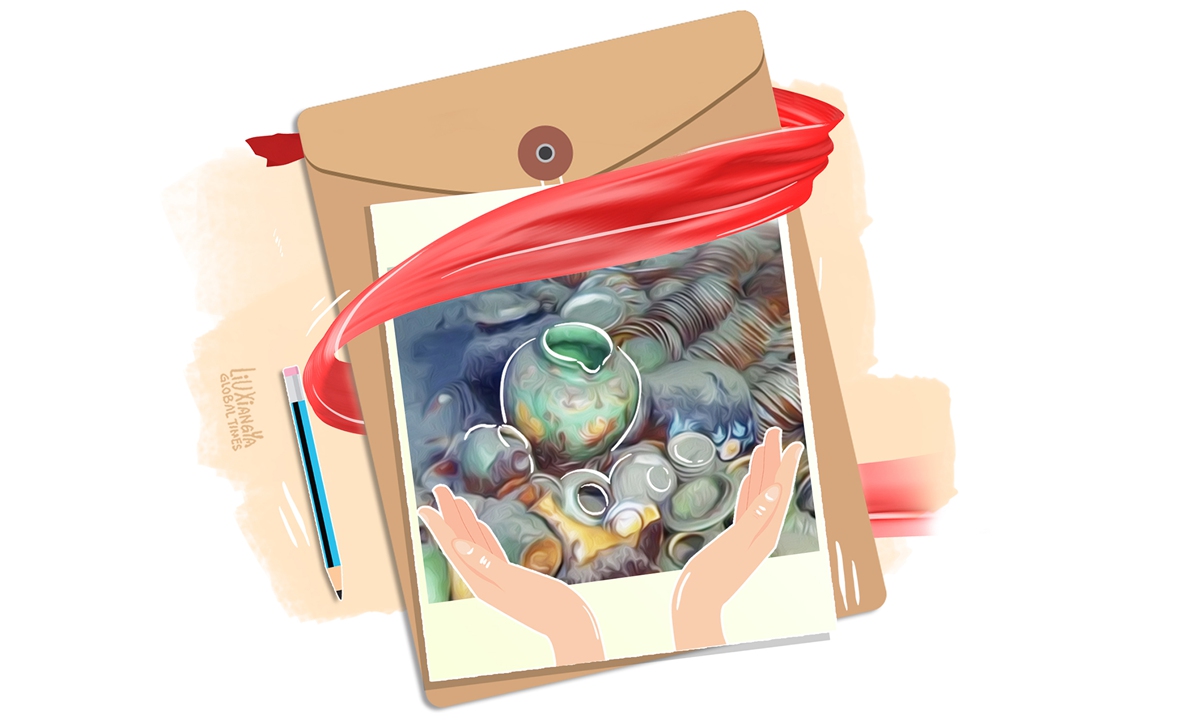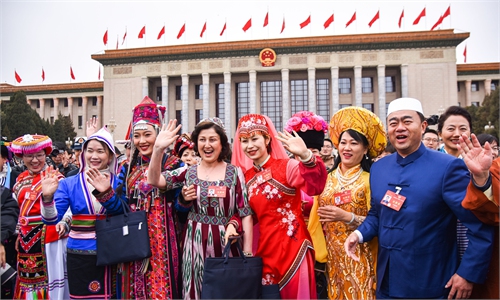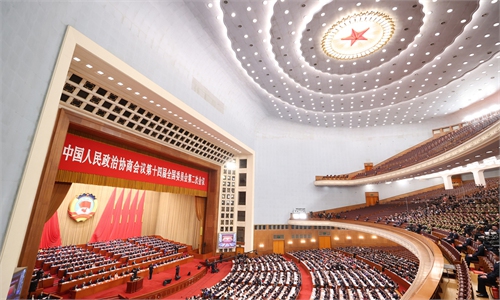
Illustration: Liu Xiangya/Global Times
"The people's status as masters of the country is the essence of people's democracy." The white paper China: Democracy That Works, released by China's State Council Information Office, defines Chinese democracy in this manner, and this definition resonates even more deeply through the analysis of the implementation of proposals and suggestions from the previous two sessions by the National Cultural Heritage Administration (NCHA) as announced on Sunday.
According to a comprehensive report the NCHA provided to the Global Times this week, during the 2023 two sessions, 186 proposals from the National People's Congress (NPC) deputies and 123 suggestions from the Chinese People's Political Consultative Conference (CPPCC) members were related to work of the NCHA, which reflect the fervent expectations of the people for empowering cultural heritage.
The NCHA then conducted in-depth research, actively adopted reasonable suggestions and proposals, facilitated the transformation of the results into tangible outcomes in cultural heritage work, and presented satisfactory responses to the deputies who made the proposals.
The related proposals and suggestions cover a wide range of topics, including the Fourth National Cultural Heritage Census, the implementation of the project to trace the origins of Chinese civilization, enhancing the protection and utilization of revolutionary cultural relics, and strengthening the management of world cultural heritage sites.
These proposals and suggestions advocate for leveraging technology to empower cultural heritage protection and utilization, advancing the digital construction of cultural heritage museums that are of significant reference value for the high-quality development of cultural heritage in the new era.
In March 2023, during the first session of the 14th NPC, delegations from four provinces separately proposed draft amendments to the law for improving the cultural relics protection system. Related organizations attached great importance to the issues, conducted field research in many cities and provinces, closely coordinated with departments and urged relevant units to carefully study and incorporate the suggestions and proposals, joining in the drafting process of the law in advance, and actively promoting the legislative process of amending the law.
In February this year, the draft was selected as one of the 10 high-quality representative cases of handling deputies and members' proposals and suggestions.
From "proposals" to "actions," from "kind words" to "good strategies," the NCHA closely integrates the handling of proposals and suggestions with improving work style, conducting in-depth investigations and research in a timely manner, and making democratic decisions based on facts and people's needs.
For instance, in response to the "suggestion on strengthening the protection and utilization of marine cultural heritage," NCHA conducted field research on the protection of marine cultural heritage in Hainan Province many times, focusing on the archaeological investigations of the Nanhai No.1 and No.2 shipwrecks.
The archaeological research center of the NCHA, in collaboration with related organs, conducted deep-sea archaeological surveys and made world-class discoveries in the waters off the northwest coast of the South China Sea at a depth of about 1,500 meters. Topics online about the achievements of deep-sea archaeology garnered 220 million views within three days, attracting widespread attention from society.
In response to the "proposal on rationalizing the construction of rural museums to promote the revitalization of rural culture," the NCHA, together with the Ministry of Agriculture and Rural Affairs, and the Ministry of Culture and Tourism went to pilot provinces such as East China's Zhejiang Province and Shandong Province, and Northeast China's Jilin Province to conduct research on the construction of rural museums, understand the progress and problems of the pilot work, summarize and promote the pilot experience, and guide all regions to construct a batch of rural museums with prominent themes and distinctive features in accordance with the local cultural heritage resources and local development needs.
Meanwhile, the NCHA has increased the openness of information, publicly releasing replies to 46 proposals and motions through its website, including 26 proposals from NPC deputies and 20 suggestions from CPPCC members, actively accepting supervision from deputies and members of the public.
Browsing through the reply letters to proposals and suggestions on the website of the NCHA, one can see the "good ideas" of each proposal and suggestion gradually turning into "keys" to enhance people's well-being and promote the development of cultural heritage.
The NCHA is just a microcosm of government organs swiftly responding to public expectations via the two sessions mechanism. These state organs have always put the people at the center, focusing on both the results and the process, and promoting the transformation of proposals and suggestions into institutional measures, striving to solve specific problems and promote work in specific areas, and providing solid support for China's high-quality development and modernization.




